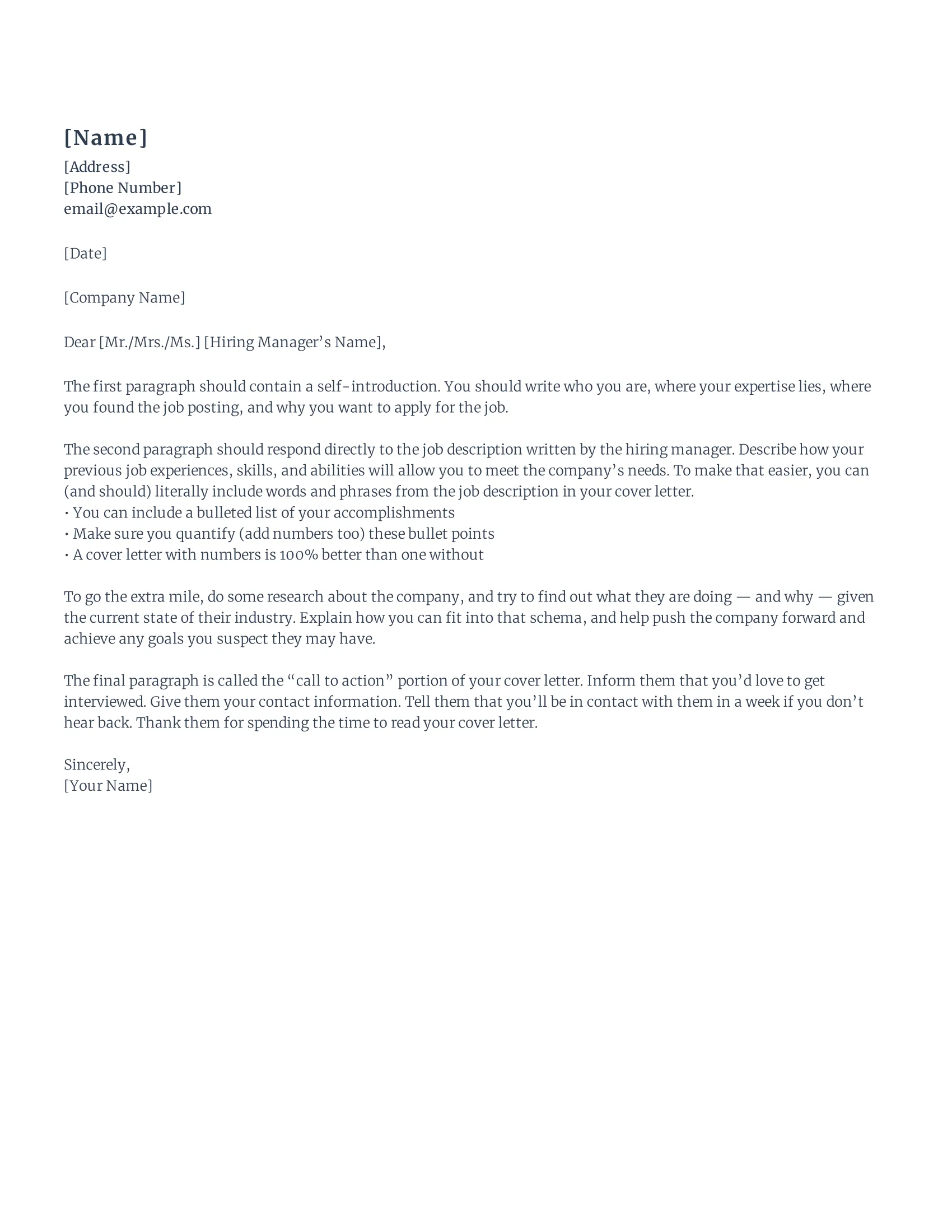Crafting a Compelling Cover Letter
A well-crafted cover letter is your first chance to make a strong impression on a potential employer. In the competitive field of call center customer service, where interactions are key, your cover letter serves as your initial voice, demonstrating your communication skills, enthusiasm, and suitability for the role. This guide provides insights and strategies to help you create a cover letter that effectively showcases your skills, experience, and personality, increasing your chances of landing an interview and ultimately securing the job. By following the tips and techniques presented here, you can transform your cover letter from a mere formality into a powerful tool that sets you apart from other applicants.
Understanding the Role of a Call Center Customer Service Representative
Before you start writing your cover letter, it’s crucial to understand the specific demands and expectations of the job. A call center customer service representative is the frontline communicator for a company, responsible for assisting customers with their inquiries, resolving issues, and providing support. Understanding the nuances of this role helps you tailor your letter to the needs of the employer, highlighting the skills and experiences that align with their requirements. The more you understand the specifics of what the job entails, the more effectively you can demonstrate your qualifications in your cover letter.
Key Responsibilities of the Position
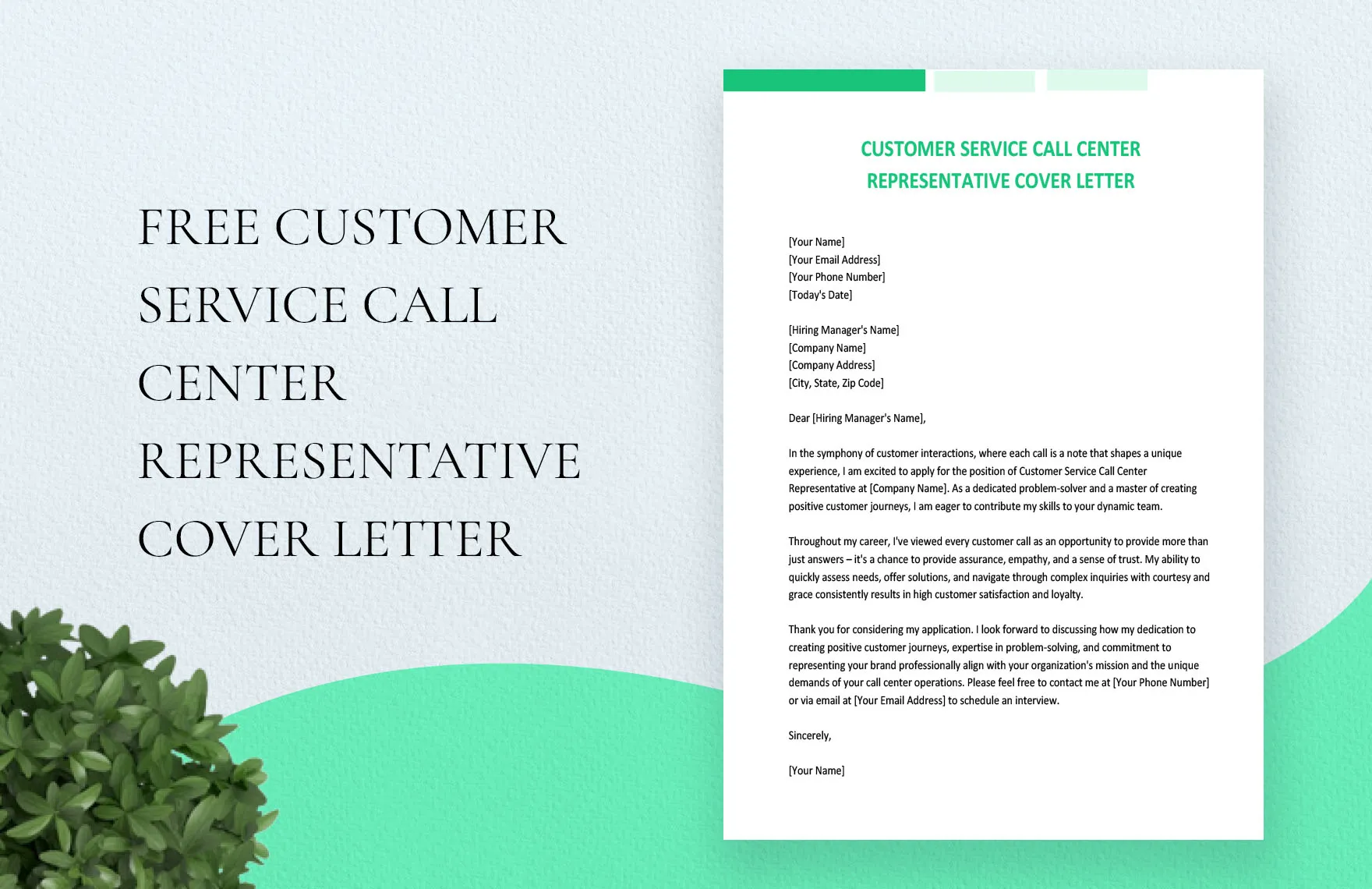
Call center representatives are tasked with numerous responsibilities. These include answering customer inquiries, resolving complaints, processing orders, and providing information about products or services. They must maintain accurate records of interactions, follow company protocols, and work within established service level agreements. Furthermore, representatives often handle a high volume of calls, requiring them to manage their time effectively and remain composed under pressure. Your cover letter should reflect an understanding of these responsibilities and showcase your abilities to perform them effectively.
Essential Skills for Success
Several skills are critical for success in this role. Strong communication skills, both written and verbal, are paramount. Representatives must also possess active listening abilities, empathy, and problem-solving skills to understand and address customer needs effectively. Adaptability, patience, and the ability to work well under pressure are also highly valued. Furthermore, proficiency in using computer systems, navigating databases, and handling multiple tasks simultaneously are essential. Highlight these skills in your cover letter, providing specific examples of how you’ve demonstrated them in the past.
Highlighting Your Relevant Experience
Your cover letter is an opportunity to showcase your relevant experience, whether gained through previous customer service roles, retail jobs, or any position where you interacted directly with customers. Providing specific examples of how you’ve handled customer interactions, resolved conflicts, and exceeded expectations is vital. Instead of simply listing your responsibilities, use the STAR method (Situation, Task, Action, Result) to describe your experiences in detail, painting a clear picture of your capabilities. This approach enables the employer to understand the value you can bring to their team.
Showcasing Your Customer Service Skills
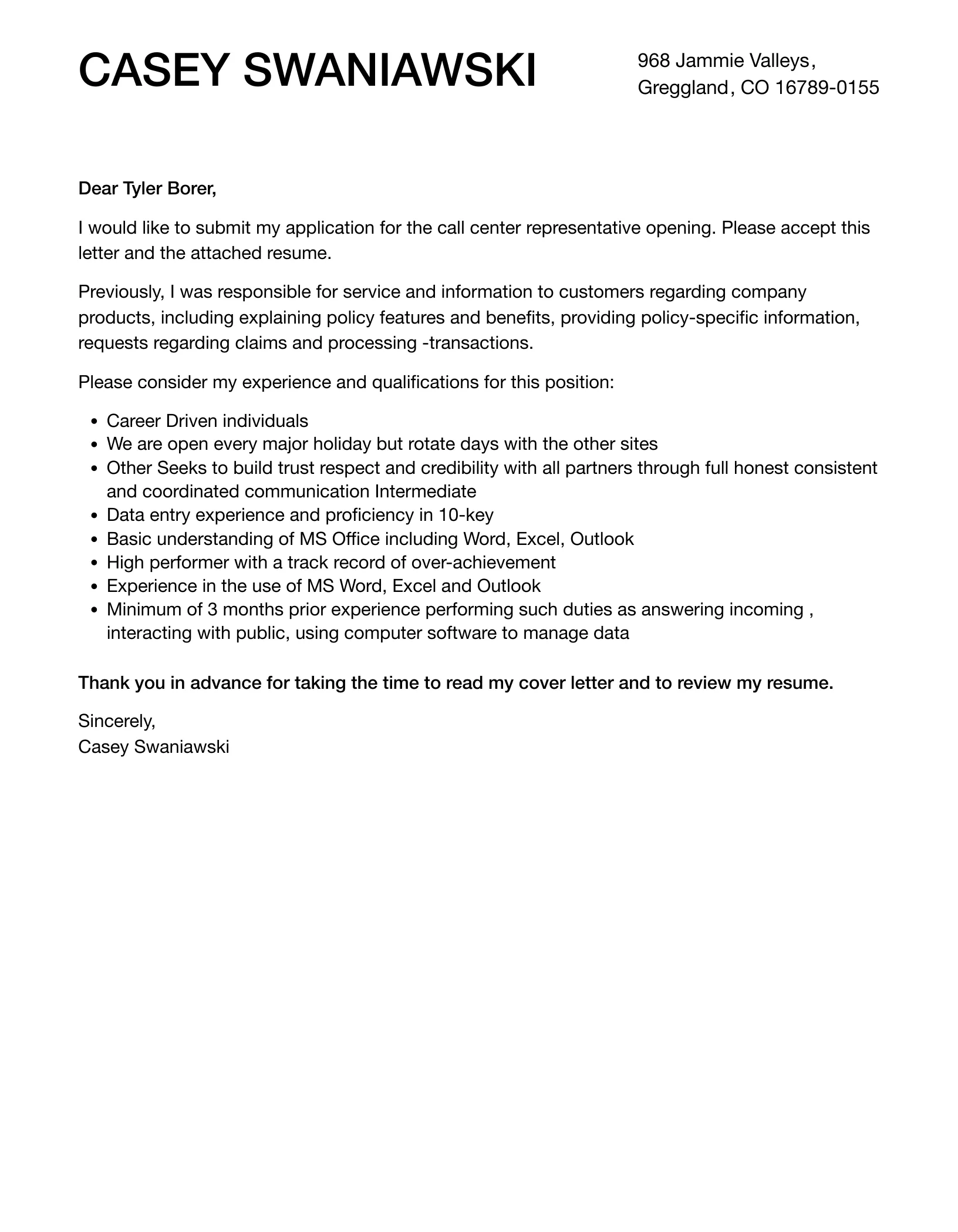
Emphasize your ability to provide excellent customer service. This includes highlighting your communication skills, such as your ability to speak clearly, listen attentively, and write professionally. Describe instances where you went above and beyond to assist customers, such as resolving complex issues, offering personalized support, or proactively addressing their needs. Showcasing these skills demonstrates your commitment to customer satisfaction and your ability to build rapport, which are highly valued in a call center environment.
Quantifying Your Achievements
Whenever possible, quantify your achievements to demonstrate the impact you’ve made in previous roles. Instead of simply stating that you “improved customer satisfaction,” provide specific numbers such as “increased customer satisfaction scores by 15%.” Mentioning the number of calls handled per day, the percentage of issues resolved on the first call, or any other relevant metrics provides concrete evidence of your capabilities. These quantifiable results make your achievements more compelling and help the employer understand the value you can bring to their organization.
Tailoring Your Cover Letter for the Specific Job
Avoid sending a generic cover letter. Tailor your letter to each job application. Review the job description carefully, identifying the key skills, qualifications, and experiences the employer is seeking. Use the language from the job description in your cover letter, and ensure that you address each requirement, providing specific examples from your background that showcase your abilities. This customization demonstrates that you’ve taken the time to understand the role and that you possess the specific skills the employer is looking for.
Researching the Company and its Values
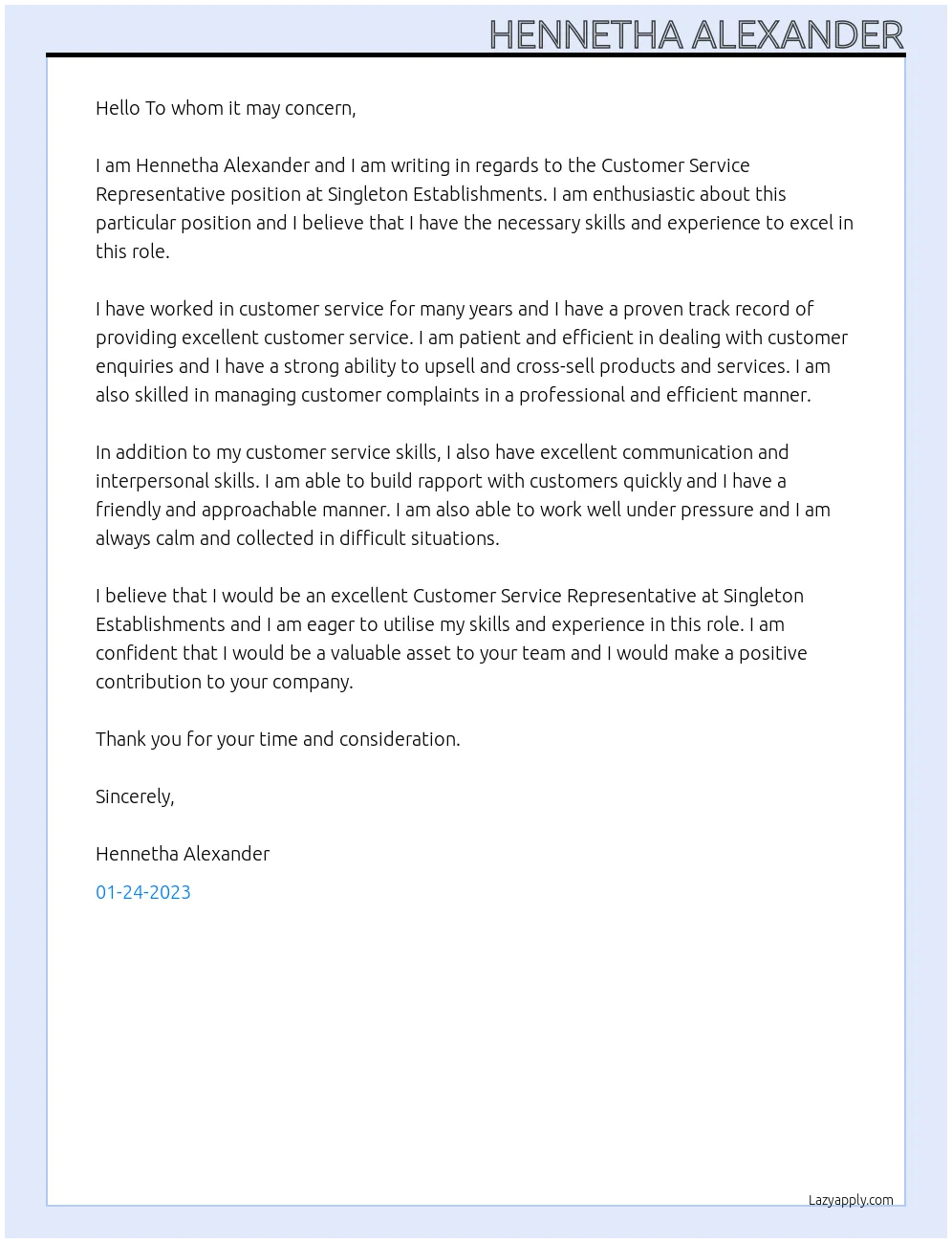
Before writing your cover letter, conduct thorough research about the company. Understand their mission, values, and the products or services they offer. This knowledge helps you tailor your letter to their specific needs and demonstrate your interest in the company. If the company emphasizes customer satisfaction, for example, you can highlight experiences where you went above and beyond to provide excellent service. Showing that you align with the company’s values increases your chances of making a positive impression.
Customizing Your Letter to Match the Job Description
Use the job description as your guide. Carefully analyze the required skills, qualifications, and experience listed in the job description. Then, tailor your cover letter to address each requirement, highlighting your relevant skills and experiences. For example, if the job description requires proficiency in specific software or technologies, make sure to mention your familiarity with them and provide examples of how you’ve used them effectively. This demonstrates that you’ve read the job description carefully and possess the skills the employer is seeking.
Writing a Powerful Opening and Closing
The opening and closing paragraphs of your cover letter are crucial. They set the tone and leave a lasting impression on the hiring manager. A strong opening paragraph grabs the reader’s attention, immediately highlighting your enthusiasm for the position and summarizing your key qualifications. The closing paragraph should reaffirm your interest, express your gratitude for the opportunity, and include a clear call to action, such as inviting the reader to contact you for an interview. Well-crafted opening and closing paragraphs can significantly enhance your cover letter.
Creating a Strong Opening Statement
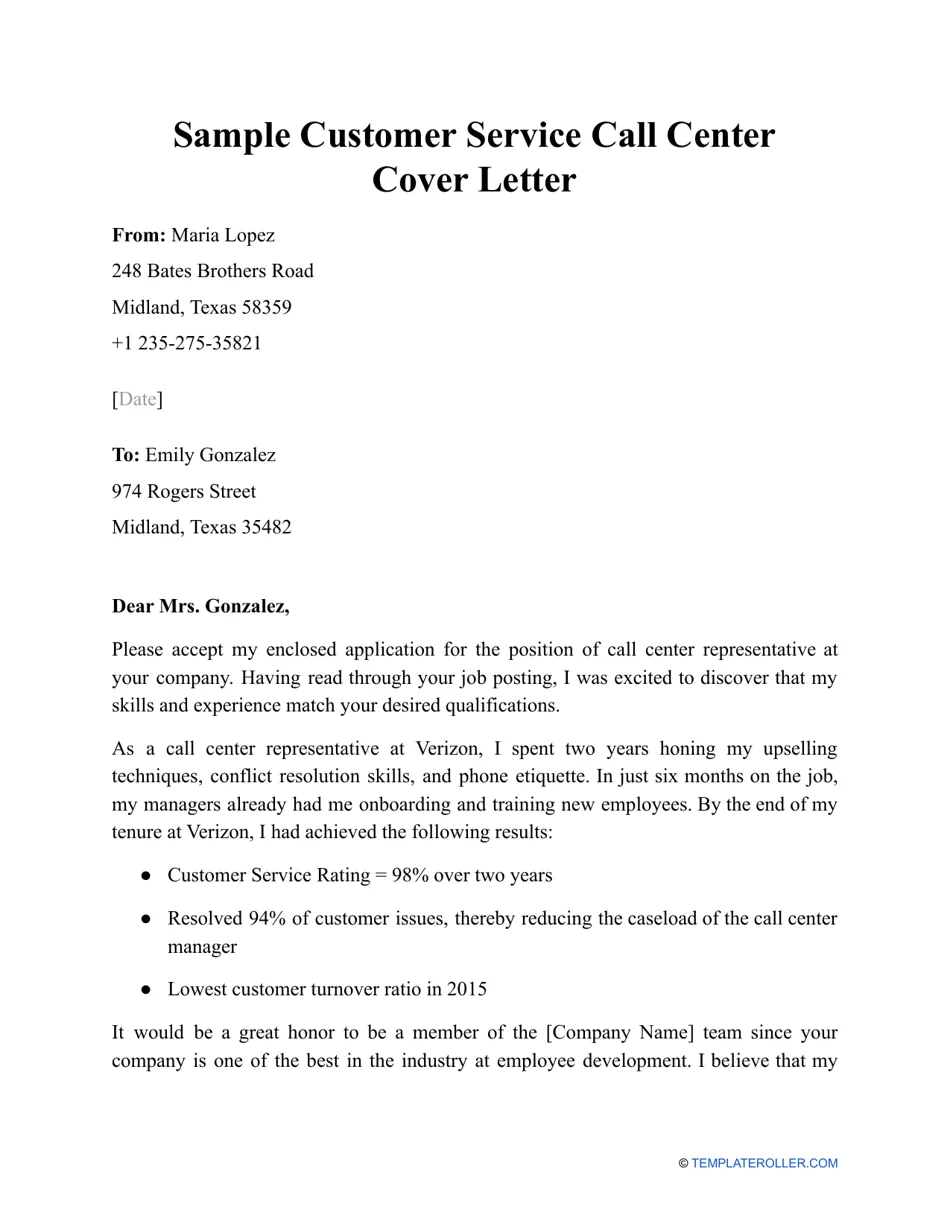
Start your cover letter with a strong, engaging opening statement that immediately grabs the reader’s attention. State the position you’re applying for, briefly explain why you’re interested in the role, and highlight one or two key skills or experiences that make you a strong candidate. Avoid generic opening lines; instead, try to convey your personality and passion for the job. For example, you might start with, “I am writing to express my enthusiastic interest in the Call Center Customer Service Representative position at [Company Name], as I am eager to leverage my exceptional communication and problem-solving skills to contribute to your team’s success.”
Concluding with Confidence and a Call to Action
End your cover letter with a confident and compelling closing paragraph. Reiterate your interest in the position and express your gratitude for the opportunity to be considered. Include a clear call to action, such as inviting the reader to contact you for an interview or expressing your availability for a follow-up conversation. Make it easy for the hiring manager to take the next step by providing your contact information, including your phone number and email address. A strong closing ensures that your cover letter leaves a lasting positive impression.
